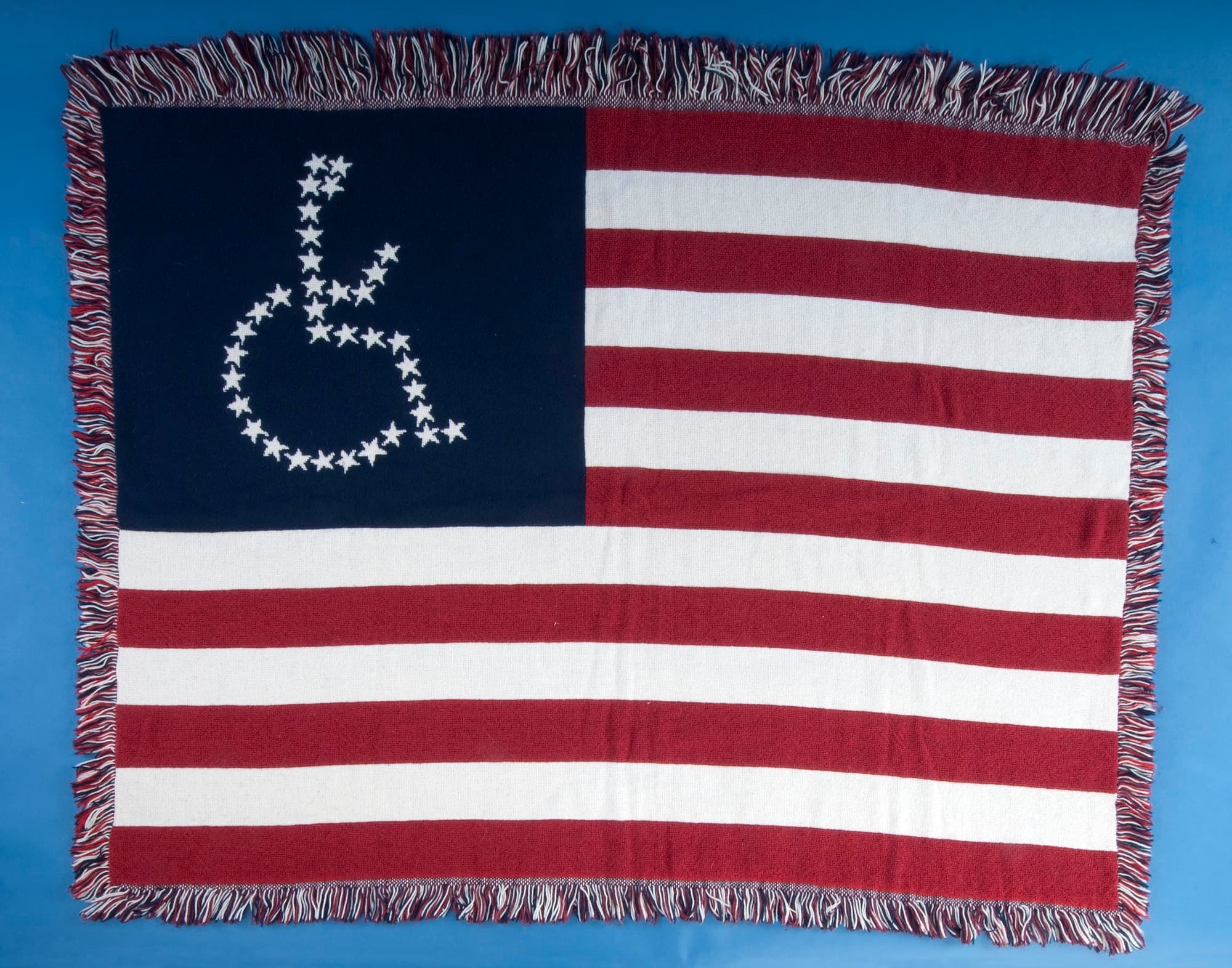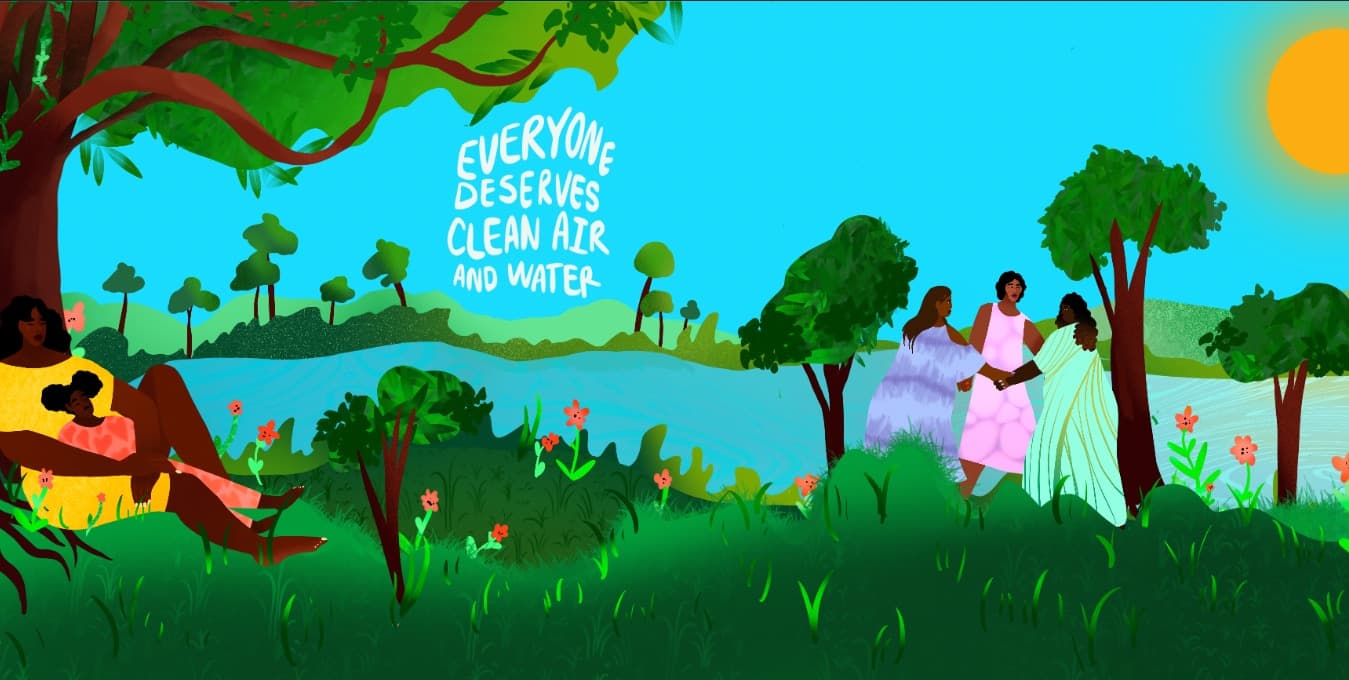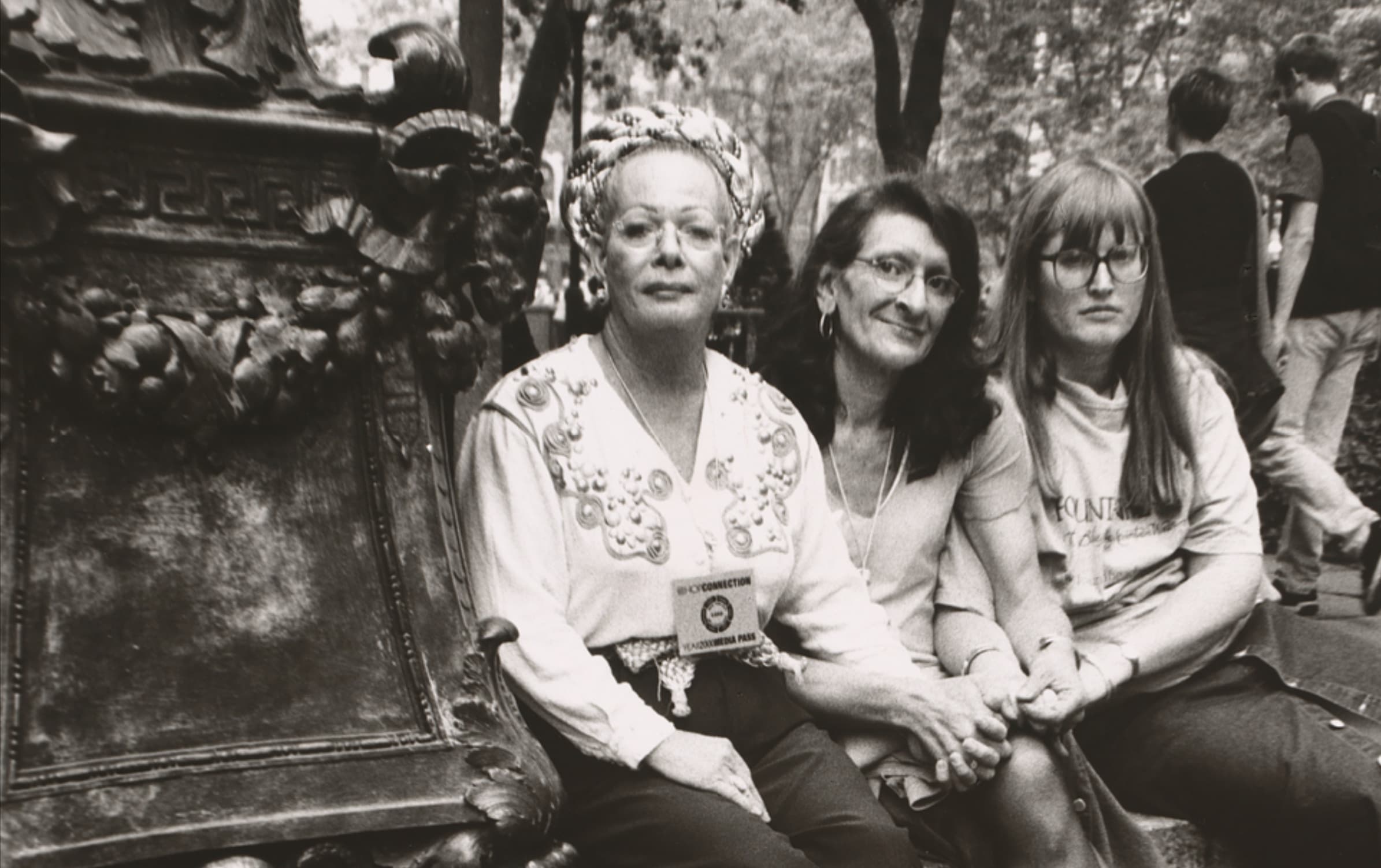
Enduring Changemaker: Sylvia Rivera
Sylvia Rivera (1951–2002) was a trailblazing activist and a pivotal figure in the modern LGBTQ+ rights movement. Of Venezuelan and Puerto Rican descent, Rivera was born in New York City and faced an extraordinarily challenging upbringing. Her father was absent, and her mother died by suicide when she was only three years old. She was raised by her grandmother but left home when she was only ten or eleven. Rivera lived on the streets and was forced to turn to sex work in the Times Square area of New York City to survive.
Rivera's legacy is most notably tied to her activism and her fight for the rights of transgender people, as well as her broader efforts within the LGBTQ+ community. She is often credited with being a key participant in the Stonewall Riots of 1969, which were sparked by a police raid at the Stonewall Inn, a gay bar in the Greenwich Village neighborhood of New York City. While her presence at the riots has been a matter of historical debate, Rivera's activism in the aftermath was indisputable and instrumental in mobilizing transgender and queer communities for equal rights.
Together with her close friend Marsha P. Johnson, another prominent transgender activist, Rivera co-founded the Street Transvestite Action Revolutionaries (STAR) in 1970. STAR was groundbreaking, providing housing and support for homeless queer youth and transgender people, marking one of the first initiatives of its kind. Through STAR, Rivera and Johnson aimed to address their community's immediate needs, offering shelter and a form of chosen family for those rejected by society.
Rivera's activism extended beyond STAR. She was deeply involved in advocacy work with the Gay Activists Alliance (GAA) and participated in numerous demonstrations and political actions to secure rights and protections for LGBTQ+ individuals. However, Rivera often found herself at odds with the mainstream gay rights movement, which she felt sidelined the needs and issues of transgender people and those living on the margins of society.
Throughout her life, Rivera fought tirelessly against the exclusion of transgender people from sexual orientation non-discrimination legislation. She was vocal in her criticism of a movement that sought to distance itself from the more radical elements represented by individuals like herself and Johnson. Rivera's activism was not just about rights but about survival, advocating for the most vulnerable within the LGBTQ+ community, including homeless youth, sex workers, and transgender people of color.
Rivera's contributions were not fully recognized during her lifetime, and she faced significant obstacles, including periods of homelessness and violence. Yet, her resilience and relentless advocacy left an indelible mark on the LGBTQ+ rights movement. In the later years of her life, Rivera was embraced by a new generation of activists and saw a resurgence of interest in her work and the broader issues facing the transgender community.
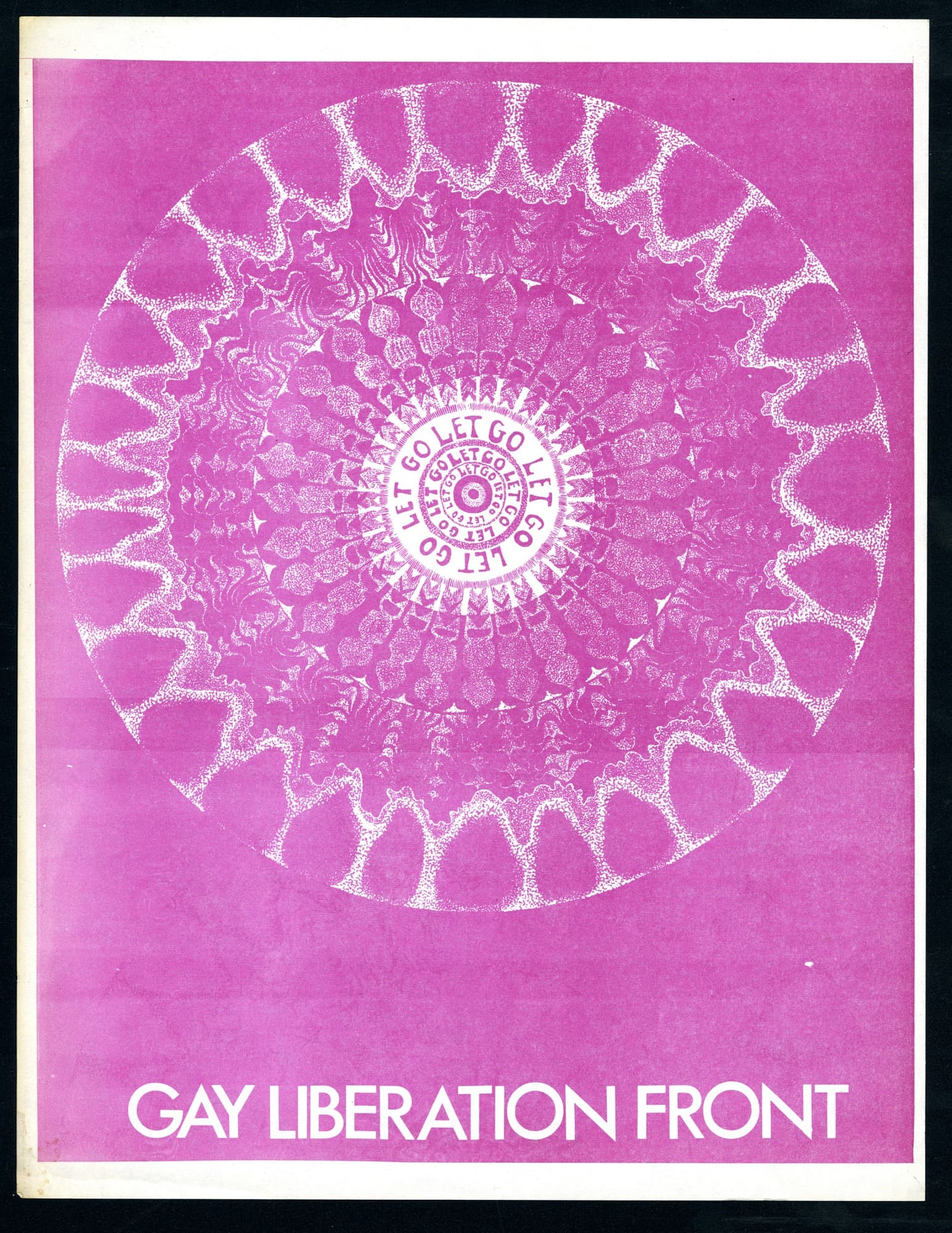
Gay Liberation Front
Source: Mark Segal Papers, Archives Center, National Museum of American History (01)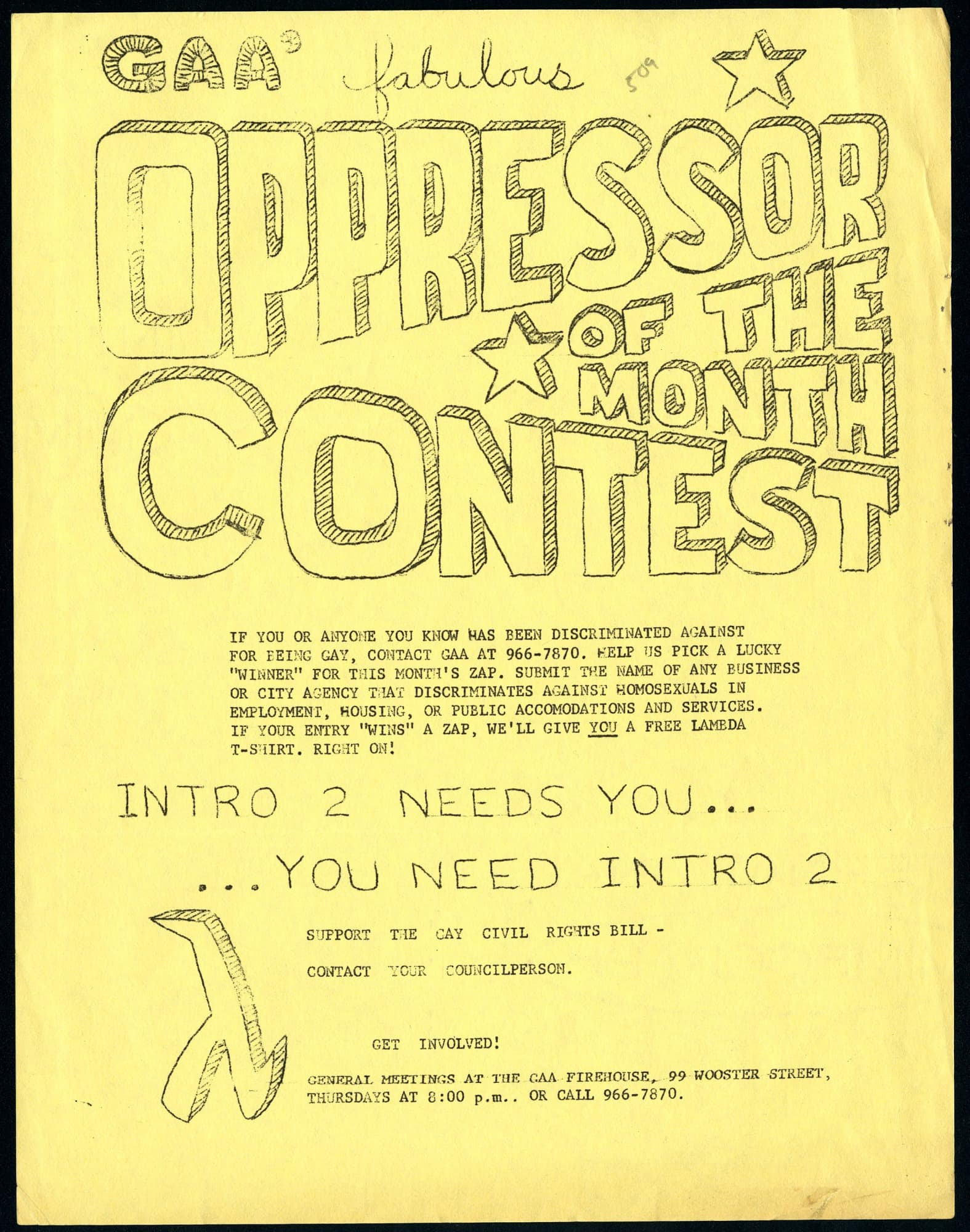
Gay Activists Alliance (GAA)
Source: Mark Segal Papers, Archives Center, National Museum of American History (02)Sylvia Rivera passed away in 2002, but her legacy lives on. Beginning in the 1990s, Rivera was acknowledged as a key figure in the LGBTQ+ movement. She is now remembered as a pioneer who broadened the scope of the LGBTQ+ rights movement to include previously marginalized or silenced voices. Rivera has been honored posthumously through street namings, theater and film portrayals, academic recognitions, and various monuments and memorials that recognize her contributions to social justice and LGBTQ+ rights. Her story is a testament to the power of resilience, the impact of grassroots activism, and the enduring fight for justice and equality.

